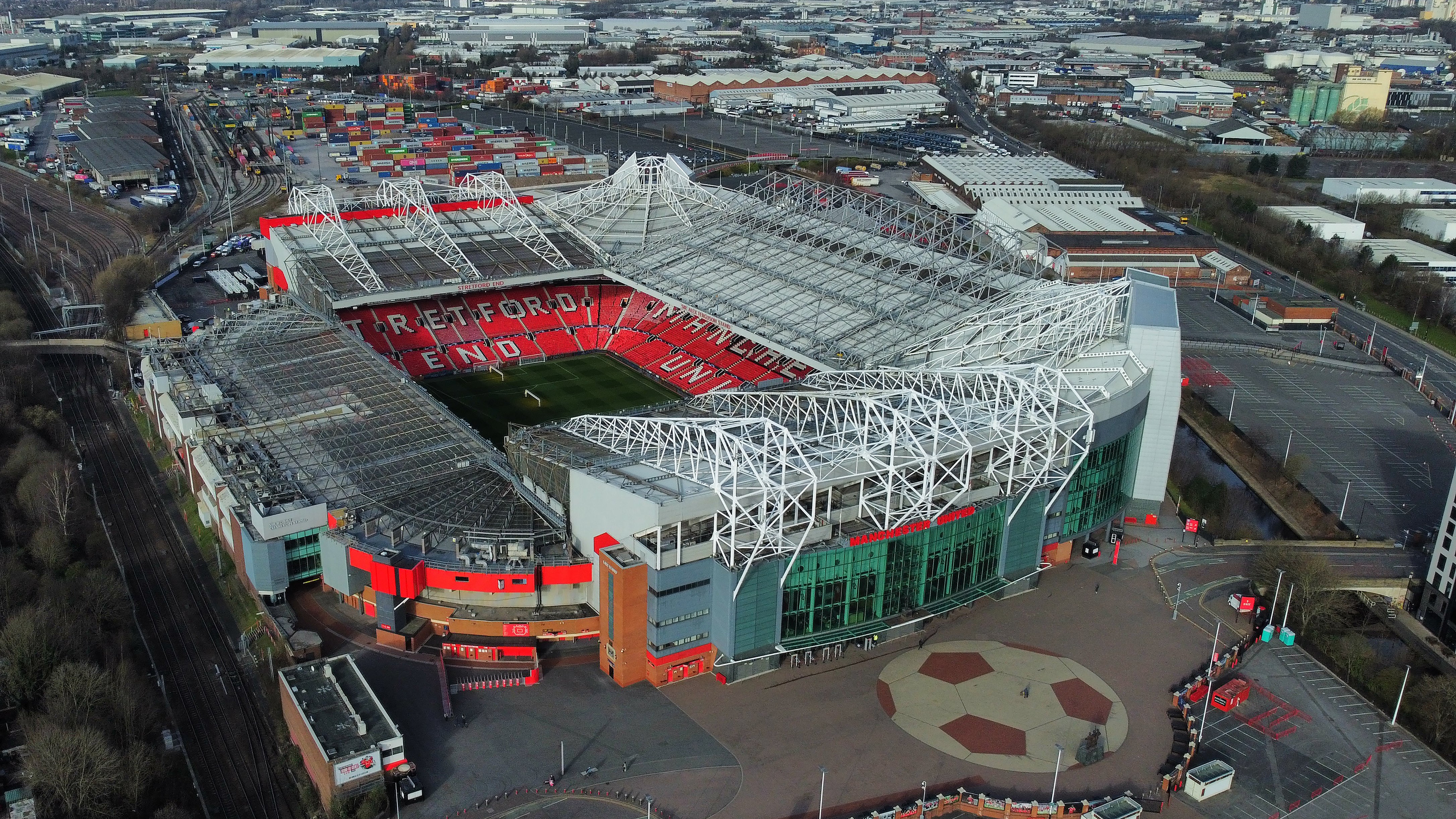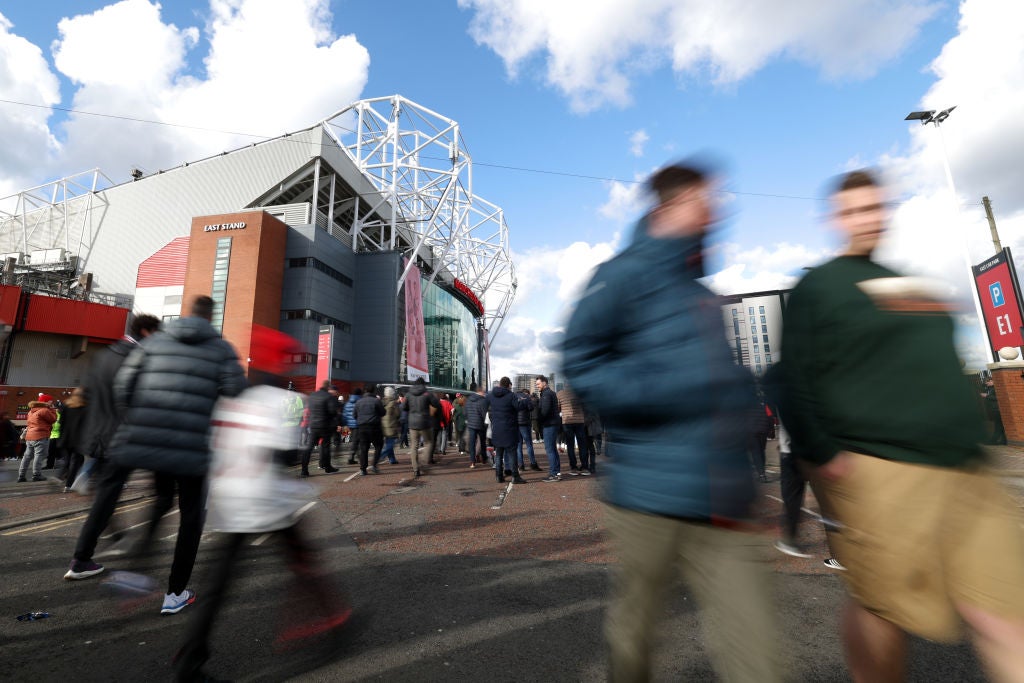Manchester United reveal plans for ‘once-in-a-century opportunity’ to regenerate Old Trafford
Plans to redevelop Manchester United’s stadium will include Lord Seb Coe, Gary Neville and Andy Burnham as part of a task force
Manchester United have set up an expert task force to plan to regenerate Old Trafford and build one of the best stadiums in the world.
Sir Jim Ratcliffe described it as a “once-in-a-century opportunity” to give United the Wembley of the north or a ground comparable with Barcelona’s Nou Camp or Real Madrid’s Santiago Bernabeu.
Lord Sebastian Coe, the chair of the London 2012 Olympics organising committee and former athlete and MP, will lead the ‘Old Trafford Regeneration Task Force’ which will include the former United captain Gary Neville, the mayor of Greater Manchester Andy Burnham and the chief executive of Trafford Council Sara Todd.
United will not move away from Old Trafford but will study the options of redeveloping the current ground or building a new one on adjacent land that they already own.
They want a ground capable of staging internationals and finals as well as providing a far more modern stadium than the current version of Old Trafford, which has barely been changed for almost two decades.
Ratcliffe, who has taken a 27.7 percent share in United, committed £237m of his own money for infrastructure improvements in his recent investment in the club, though any project would cost far more than that.
United would need financial support from partners for a new stadium and would explore both private funding sources and a public-private partnership.
United see it as part of a broader regeneration of the Old Trafford area, including an economic and social hub that would stretch to Salford Quays and have improved transport links.

Ratcliffe said: “This can be a major regeneration project for an area of Greater Manchester which has played such a key role in British industrial history, but which today requires new investment to thrive again. The north-west of England has a greater concentration of major football clubs than anywhere else in the world, yet we don’t have a stadium on the scale of Wembley, the Nou Camp or Bernabéu. We will not be able to change that on our own, which is why this task force is so important to help us seize this once in-a-century opportunity.”
Coe added: “Throughout my career in sport, I have seen the potential for stadiums to become focal points for strong communities and catalysts for social and economic development. That was certainly true of the venues we built in east London for the 2012 Olympics, and we are overdue a project of similar scale and ambition in the north of England. I am honoured to have this opportunity to share my experience in support of this tremendously exciting project.”
Neville, who made 602 appearances for United and is a co-owner of Hotel Football, just opposite Old Trafford, will also play a key role in the redevelopment. He has been a critic of the Glazer family, United’s owners since 2005, but has agreed to serve on the panel.

He said: “I’m incredibly fortunate to have had the privilege of playing hundreds of games at Old Trafford, and no one can take away those amazing memories. But Old Trafford has evolved throughout its history and it’s clear we are at a point where it has to change again to ensure that Manchester United has a world-class stadium befitting the world’s greatest club. While I want the best for Manchester United, I also want the same for the surrounding community. Old Trafford should be a stadium that the whole of Greater Manchester can take pride in, and be a catalyst for sustainable, cohesive growth in an area of the city that has been neglected for too long.”
Burnham added: “The development of one of the most iconic stadiums in world football will help attract investment, create jobs, and lead to new opportunities that will not just benefit Trafford but communities across our city-region and beyond. Greater Manchester has been a hive of innovation and creativity for centuries, and sport has played a huge role in shaping our past and present. This bold and exciting vision for the future of Old Trafford and the surrounding area can become another success story for our city-region.”
Join our commenting forum
Join thought-provoking conversations, follow other Independent readers and see their replies
Comments


Bookmark popover
Removed from bookmarks